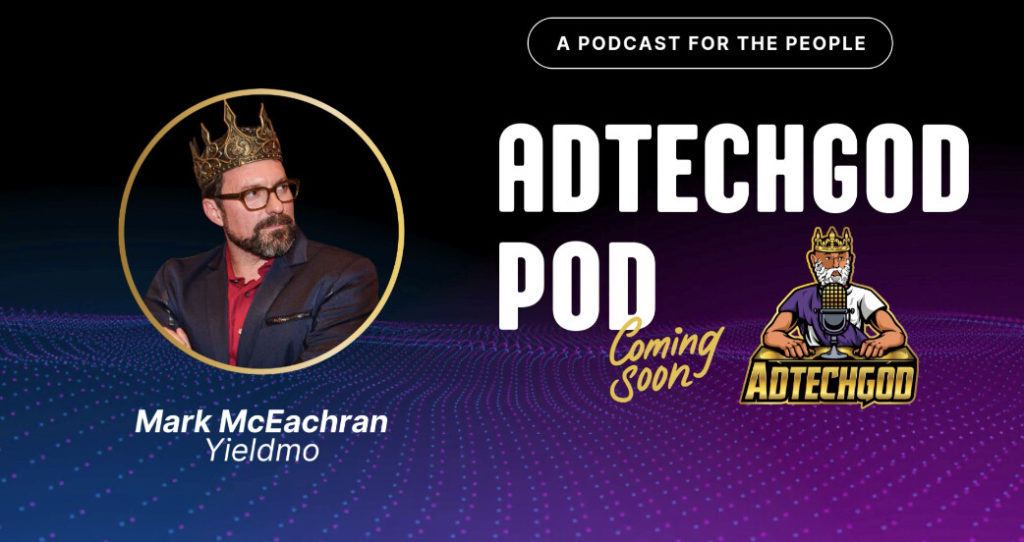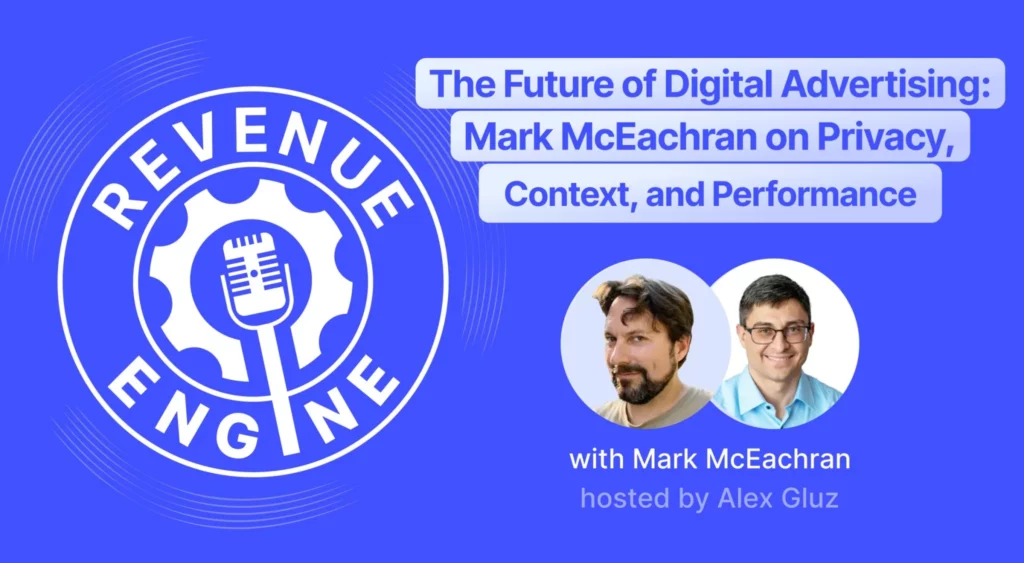
Archive for Mark McEachran
The God of All (Ad-Tech) Podcasts
The Industry Pullback From Cookie-Based Tech Proves Cookies Are Already Dead
The cookie is already gone. The budgets have shifted. All the howlers screaming about Chrome’s road map for deprecation are akin to the last soldiers standing on the battlefield clinging to the flag of a fallen nation. In short, it’s over.
But we can’t measure the downfall of cookies by looking at the bidstream. There is still plenty of cookie-based buying going on. The old user-sync systems are still playing pixel ping-pong with cookie-enabled browsers.
The Future of Digital Advertising

Riffing on the future of advertising with Alex was a lot of fun. Typically these conversations happen in a bar over beers (or whiskey), but a podcast isn’t too bad of a venue either.
I did, at one point, lose my train of thought and went into full-on pitch-mode instead of answering the question… but that’s how it goes when you’re riffing sometimes.
Jump in and have a listen. Do it in chipmunk-mode at 1.5x or 2x speed. It does nothing for my voice, but it’ll shorten your burden of listening.
Abridged Identity
This article was originally posted on Advertising Week. Be sure to pop over there when you’re done and catch up on identity, privacy, and the latest industry news.

What can playfully be described as a kerfuffle around how DSP IDs are being derived in the bidstream, the recent discord at the IAB Tech Lab has exposed not only shortcomings in the RTB protocol, but also a functional deficit in the programmatic ecosystem.
At the heart of the debate is the issue of how some SSPs and publishers are using probabilistic methods to apply DSP user IDs to requests from browsers that do not have 3rd party cookies enabled. Historically, DSP IDs have only been pinned to a cookie. Any bridging of IDs from a cookie-enabled browser to another browser, no matter how reliable the methodology, is not in-line with many DSP expectations. A shorthand term for this activity could be ID-Bridging. This is not the worst form of the practice. And it can grant a publisher additional coverage of DSP IDs, resulting in more revenue, but can result in some blowback when the DSPs realize that the user’s browser doesn’t actually have their cookie.
Read moreThe Identity Crisis
This entry was originally posted on The Drum as an Open Mic Article.
The exact date upon which the 3rd party cookie vanishes is tough to pin down. What we are reasonably certain of is that sometime in the second half of 2024 the Google team will release a version of Chrome that will have them turned off by default.

One of the foundational underpinnings of online advertising will cease to exist. Falling away will be the common key used to value and target ad opportunities, contextual signals used to build audience segments, attribution functionality used to gauge performance, not to mention the collateral impact that losing all these things will bring.
It’s important to explore both the direct and indirect impact of cookie deprecation to have as much of a complete picture as possible. If one becomes too focused on the direct impact, they will lose sight of the long-term and peripheral damage from the wake of this change.
Read more




